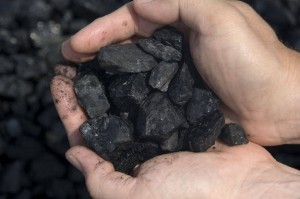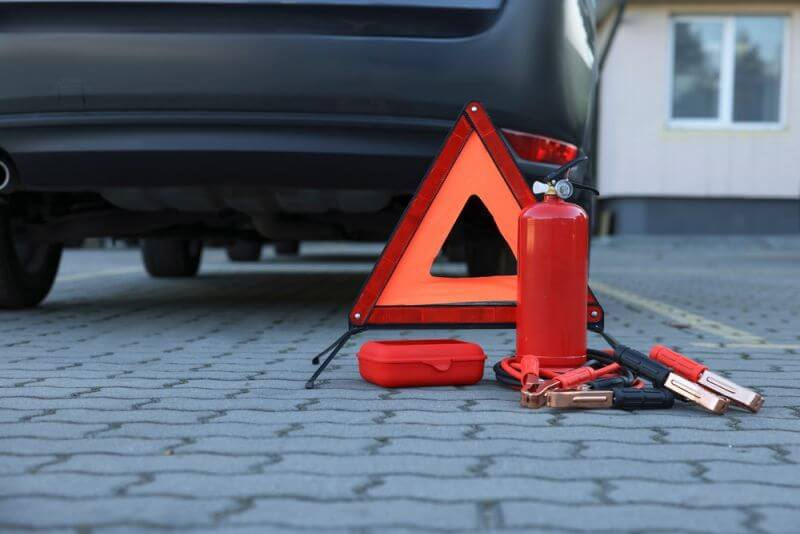In this article I’d like to review some of the most common sources of fuel for heating your home, cooking meals, heating water, and powering various machinery. Ranging from refined fuels such as gasoline, diesel and propane, to natural resources including animal dung, wood and coal, there are many sources of fuel available for use off the grid or after the SHTF.
Gasoline
For powering generators or fueling cars, gasoline is great, but it presents a number of problems to the steadfast prepper. First and foremost, production of gasoline requires extensive treatment and refinement of crude oil. That means if the grid goes down or SHTF in a big way, gas supplies are apt to be quite finite. Second, gas doesn’t store very well over long period of time, even with the addition of stabilizers and other fuel additives.
Typical shelf-life for gas with appropriate stabilizers is anywhere from 6 – 18 months, but gas can potentially be stored for 4 – 6 years under the best circumstances. For the longest storage times, look for gasoline with little or no added ethanol and store your gasoline in gas-tight containers to limit water contamination that will spoil the fuel.
Diesel
Diesel fuel is indispensable for use powering diesel generators, diesel trucks, various farm equipment, and for use as heating oil for a home, especially in a short-term disaster. While diesel, like gasoline, requires treatment and refining from straight crude oil, diesel is generally cheaper than gas and can usually be stored for 2 – 3 times as long as gas, or longer. Treated with stabilizers and other additives, diesel has been known to last upwards of 10 years while retaining good viability.
Propane
Propane fuel can also be stored for use in heating and cooking, especially if you have a larger tank that is stored in a cool area and has proper seals. As far as fuels go, propane is pretty awesome in that it practically never goes bad.
Properly stored, propane can last for 10 – 20 years, and potentially longer. Unfortunately, the tanks and valves used to store and contain the propane are at risk of rust and corrosion.
For the best storage results, propane should be stored in a cool, dry place in tanks that are verified to be in good condition, with high quality valves and gaskets. Virtually all tanks will suffer from some degree of leakage, but high quality tanks and valves will reduce leakage.
Wood
Burning wood for warmth and cooking is a habit that has been with humans since time immemorial. Indeed, until well into the 1800s, wood and various wood byproducts constituted the main source of fuel used by most people for heating their homes and cooking meals.To this day, many traditional wood-burning ovens can be used for cooking and heating the home. andwood-fired furnaces and boilers also exist. Overreliance on wood as a fuel source can lead to harsh deforestation, though, so replanting and prudent management of this resource are needed.
Before being used as fuel, wood generally must be dried, a process sometimes known as seasoning or curing the wood. The drying process typically lasts 6 months or longer, depending on how wet the wood is and how much moisture you wish to remove. For many people, this can be easily accomplished by storing split firewood in a woodshed to protect it from excess water and environmental changes. Stored in a dry place and kept safe from termites, wood can keep for many, many years and can be steadily replaced as necessary.
Coal

While it’s mostly used for industrial applications and electricity generation, coal is still an immensely important fuel source to this day.
Ranging in color from shades of brown to matte black and polished jet black, types of coal range from lignite coal to bituminous coal and anthracite. Low-grade coal is typically used for heating or cooking, and for electricity production, but the highest grade anthracite coal is generally used for industrial purposes like smelting metal.
Where coal seams are found lying near the surface, coal can often be mined in open pit mines. This involves removing any topsoil and surface stone that lies above the coal.Shaft mining can also be carried out underground, but bears with it additional associated risks. Coal can be mined as needed or stored in open piles or under cover to keep it dry and readily available for use.
Animal Dung
Dried animal dung has been used throughout history in many cultures as a source of fuel for heating and cooking when other fuels were scarce or unavailable.To this day, animal dung is regularly used as a fuel by billions of people worldwide for heating their homes and cooking their food, a practice that is not only effective but also economical. As a natural byproduct of owning or managing livestock, animal manure is also a renewable resource.
Most commonly, cow or buffalo dung will be dried, and in many cases mixed with straw or hay waste left over from the harvest, to be used as fuel. Camel dung, horse manure, and in some places yak or sheep manure can also be dried and used as fuel.You can make dung cakes for burning, by mixing dung with some water and additional straw or hay waste, or other crop material left over from harvesting. After mixing and forming the cakes, let them dry thoroughly and then use them as fuel chips.
Wind or solar power are not the most typical of fuels, and they won’t power your gas or diesel-guzzling machinery (unless you do some crazy alterations to it), but they can produce an adequate amount of power when properly set up and operating under good conditions.
A battery array can be used to store excess energy generated on good days, and to supplement on more inclement days. Functioning lights and a few basic electronics can help a lot when the rest of the grid is down, especially if you have medical equipment that needs to stay powered.
This article has been written by Gaia Rady for Survivopedia.









Craig | October 14, 2013
|
I was wondering about kerosene since you had other hydrocarbons on your list.
Terry | October 14, 2013
|
I have some experience with kerosene, and it burns well although with some oder, similar to diesel fuel. The main problem with kerosene (at least up here) is buying it in bulk, bigger than 2 gal. cans. The main suppliers are hardware type stores that only sell it in cans, the fuel companies no longer carry it in bulk.
Craig | October 14, 2013
|
What quality of kerosene are you referring to? We have a local farm store that sells it right out of the pump like their gasoline. Or are you referring to the highly refined kerosene which is used in the floor heaters that many stores sell?
Romeo | October 14, 2013
|
What about pure vegetable oil, I altered my Diesel Chrysler Voyager to run on PVO’s. You can produce your own as a winter crop.
http://en.wikipedia.org/wiki/Rapeseed
Rapeseed oil is used as diesel fuel, either as biodiesel, straight in heated fuel systems
You can extract it yourself;
http://en.wikipedia.org/wiki/Vegetable_oil#Mechanical_extraction
http://pub.epsilon.slu.se/3436/1/SLU_BT_R2004_01_LCA_ro_RME_ethanol_Sven_Bernesson.pdf
Old Food | October 14, 2013
|
kerosene will last almost indefinitely but only if it is kept airtight, not in typical kerosene cans. Otherwise it will absorb moisture from the exposed atmosphere. It’s not explosive so it’s safer to store and there are lamps, heaters and cookers that run off of it. I live out in the sticks and so I have access to bulk truck deliveries. That might be a problem for urban folks.
sam marcus | October 17, 2013
|
Pay off the national debt by cornering the market selling Washington’s animal Dung ie.Political B S it’s pure and full of fat to burn well. It is a never ending supply in several brands; Democratic, Republican and several others. New reps every 4 years. Priced at give away prices.
Mike O'barr | October 14, 2013
|
Kerosene is a more refined version of Diesel and JetA is a more refined version of Kerosene. I’ve ran each of these fuels in both of my Dodge Cummings engines, the 12 valve and the 24 valve versions. My VW TDI has only had Kerosone through it other than Diesel. I no longer have access to JetA. There are other fuels too that were not mentioned like alcohol, wood gas, and waiste oil. I have ran my Cummings engines and a some of my older Mercedes diesels on filtered Automatic Transmission Oil. I also mix a gallon of filtered engine oil with 30 gallons of diesel fuel. I’ve also made Biodiesel and have ran it straight.
Gary | October 14, 2013
|
Diesel is NOT cheaper than gas. It’s price is higher that all grades of gasoline.
George Fryzelka | October 14, 2013
|
Charcoal would also work. It could replace wood and could be purchased by the bag locally.
Byron | October 15, 2013
|
No ethanol/white lightning/moonshine/corn squeezins?
Mike O'barr | October 15, 2013
|
Why?
Mike O'barr | October 15, 2013
|
Or was that a question to me?
Mike O'barr | October 15, 2013
|
In case that was a question for me, yes, I have made Hooch. I have a permit to make “Fuel Grade Alcohol”. It’s the easiest stuff in the world to make too. I’ve made mine from just some contaminated sugar from our food storage. Distilled that up to 96% (that’s 192 Proof). I’ve also made from corn meal, corn starch, potato starch and Mesquite seed pods. Living in Arizona Mesquite trees are every where and one large trees produces close to 1500 lbs of pods.
Ron | April 27, 2014
|
Where can I purchase the book on making black diesel?
thank you Ron
lordsiva | October 15, 2013
|
What? No picture of animal dung fuel?
George Fryzelka | October 15, 2013
|
Corn kernels can also be used for heat or cooking. I believe there are stoves designed to burn corn kernels (dry kernels of course).
Jay | October 15, 2013
|
I wonder if any service man has observed overseas the use of human dung placed in a concrete circular container about half a foot high with a concrete lid. You need some piping into the container to draw off the methane gas resulting from decomposition. The methane burns like propane and is used for cooking primarily.
bRAD | October 16, 2013
|
Jane this can also be done with yard waste in a container. It is called biogas. I often wondered how we could convert our household septic system vent into a supplier of gas. Most houses with septic systems vent right through the roof of your house, all we need to do is contain the gas for energy. I am sure it is quite explosive…LOL
John Parker | October 17, 2013
|
I have plenty of mesquite (in season) How do yo you prepare it to use?
jean | October 17, 2013
|
diesel generally cheaper than gas? you must be living on another planet. As a truck driver I can certify diesel is always more expensive than gas
bob carter | October 25, 2013
|
Diesel is not cheaper than gas
Ivonne | October 28, 2013
|
Hi, good to find communication.
Kerosene, I think will be the good choice. I am from Cuba and lived there for 24 yrs under stressful conditions, we use Kerosene for everything. Cleaning floor, as a fuel to cook and even treated small wounds. Not sure if in USA we can do the same.
gritch | November 27, 2014
|
Kerosene also was used to get rid of head lice when I was a kid.
Pingback:Best Fuels For Off-Grid Survival | SHTF R U Ready? | October 30, 2013
|
MARKWW | November 7, 2013
|
FOLKS BREAKING NEWS It is starting out west in California If I am not mistaken there is a push on for the whole country by the FEDERAL GOVERNMENT to stop everyone from burning fuels in homes bar b q pits and fire places under the EPA . This has been going on for the last few years especially California where they say there is too much pollution. What they failed to do is look at where it is coming from. IT’S FROM MEXICO from Volcano releases,and then blame the American People, saying your the ones at fault. I feel in my heart that the Feds and HOA’S will start to keep records of those using fire places and bar b q pits and try to stop the country from BURNING FUEL to LIVE
Mark
gritch | November 27, 2014
|
Next will come fireplaces. An awful lot are used for decorative fires, not for essential heating. I see wood for sale in urban supermarkets (Wegman’s for example). Yuppies want their ambiance.
CraigM. | November 12, 2013
|
Wow, an alternative fuel for the non-renewable sources of energy. Creative mind! Amazing!
Joanne ryan | November 13, 2013
|
does coal keep for years under cover?how do you keep kerosene airtight? I read it keeps well but just have plastic container
gritch | November 27, 2014
|
Coal has a very short shelf life. Be sure to rotate your stick monthly. 🙂
Ron | November 19, 2013
|
What appened to the most obvious fuel we use every weekend during the summer-
charcoal! Did I miss it somewhere in the article. Stock up on it, keep it in airtight drums, easy to use and you are already familiar with it.
Wanda | November 25, 2013
|
Small solar yard lights can be used for lighting so you can save your batteries. I have them in a south window of a cabin to be used during power outages. Not great but no one steals them from inside and they will keep you from breaking your neck in the dark. Also you may need black cloth for doors and windows to block someone seeing your “hiding place at night.” These “black out” curtains can double to haul stuff in if you have to move on foot.
Great Grey | January 10, 2014
|
Ideal would be your own natural well.
Pingback:Bio Prepper | Best Fuels For Off-Grid Survival | February 13, 2014
|
Peter FISCHER | April 24, 2014
|
The only what I missed -is the old style way (what was used after the war in Germany) to drive a vehicle (mostly truck). You burn all kinds of scrap woods and produce gas in a big container connected to your gasoline or diesel engine. Maybe you explained this in an earlier Report? Please let me know, Peter
THE EMAIL IS: [email protected]
Robert Grissom | June 19, 2014
|
See Wikipedia article on wood gas generators. Cheers.
pompeii | May 3, 2014
|
so i guess, i made a right decision in converting to propane because based on this post it has a longer shelf life. Just to share, try visiting this website that I found, http://gomowpropane.com. It’s a good reference for your concerns about propane conversions.
Lynne | May 8, 2014
|
Solar ovens will cook for you without fuel as long as you have some sun – also sterilize water, dehydrate food, and much more. Rocket stoves for cooking – make your own or buy one already made. They take very little fuel (twigs, dry grass, etc.) and burn clean after they get going good. Heating your home can be done with a hot water setup (solar or ground). We have friends who built their home in the 70’s – they put lines under the ground and ran them to the house. In the summer it puts cool air in the house and in the winter it puts warm air in the house. Works real good unless it’s really cold.
Monty | May 15, 2014
|
What about hydrogen and alcohol ?
Pingback:Best Fuels for Off-Grid Survival « Survivalist Insider | August 31, 2014
|
Fred Leeuwenburgh | October 7, 2014
|
With regards to diesel fuel – up here in Alberta, Canada diesel has been running at a higher price than gasoline for years now. In some cases as much as 10 cents a liter (aprx a quart) more. It is still popular as even with the price difference it is still cheaper per mile than gas not to mention the much high torque from the diesel engine.
Also you did not mention kerosene as an alternative source. We have a vast array of kerosene heaters available and the newer models are quite efficient.
Karl Vogelheim | February 5, 2016
|
While comments are helpful, what we need us a series of DIU hard copy manuals in alphabetical order that can become the encyclopedias for those of us who are dedicated survivors. I saw a number of them years ago. There were all kinds of books and tips and illustrations from the 17th and 18th and 19th centuries. Everything from starting a fire to splitting wood to heating water. Remember, if we have a major disaster, and survive for a year, a good portion of the population will be dead, maybe as high as 50%. In the US alone, that means about 150 million less people who will have to rely on what resources are left. Unfortunately, that may include a lot of our friends and relatives but the result will be a lot more resources for we who are left. So if you read this, let me know if you know where these books etc. may exist and I will put them together for all of us. We may as well get to know each other ahead of time because we will may be the only ones left!
david simpson | December 20, 2016
|
A very interesting article but I susggest you to use some other insulation method for preventing heat escape in winter